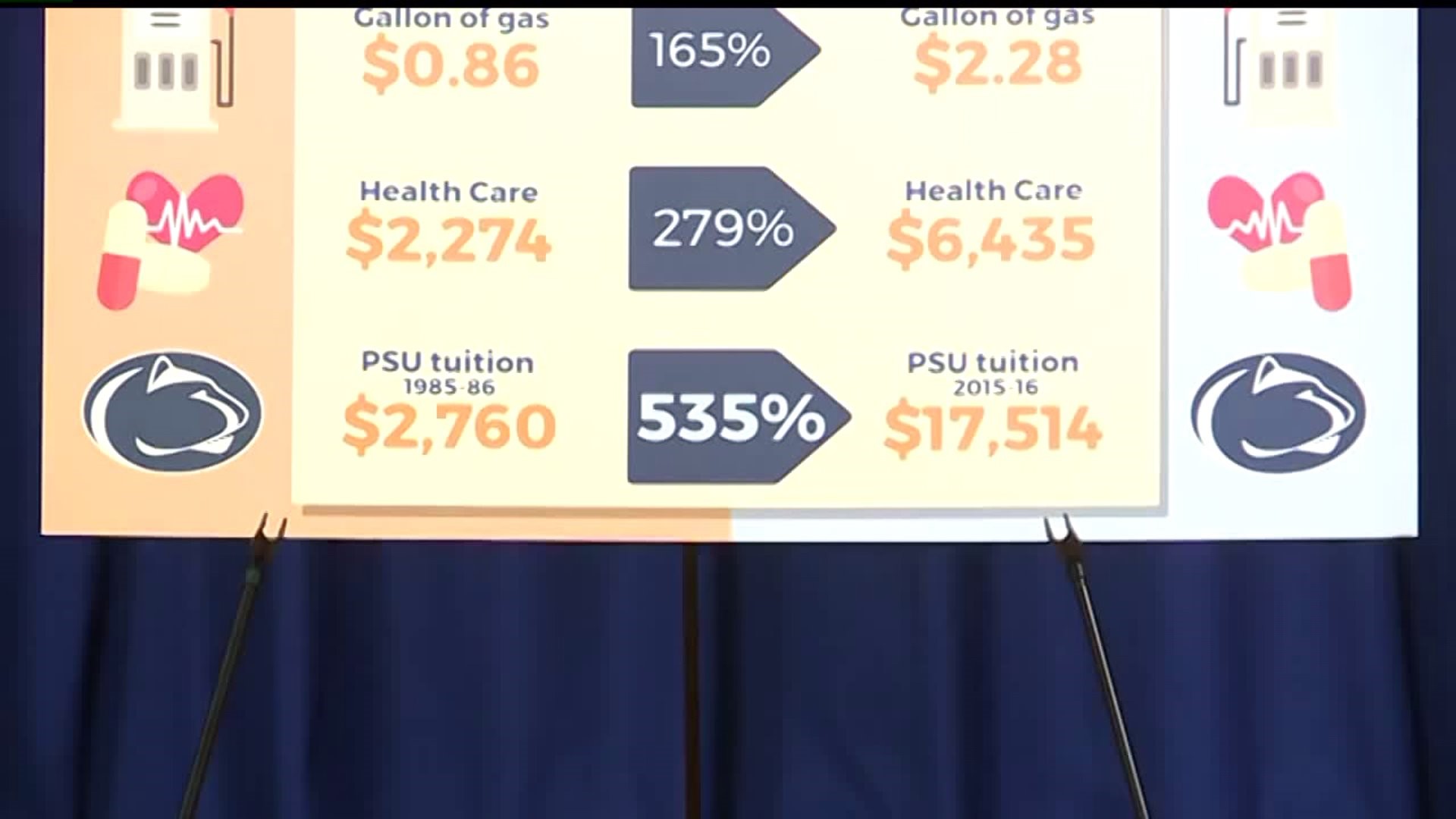"Penn State has made a modicum of progress in restoring the reputation of the commonwealth’s flagship state university,” DePasquale said, noting the 2011 arrest and subsequent conviction of former coach Jerry Sandusky. “Penn State must – first and foremost – do more to improve campus security, particularly for children who participate in programs and events on its campuses."
DePasquale said his audit found the university failed to give background checks to 100 percent of its employees in 2016. Highlighting Penn State's 732 youth summer camps, the audit discovered 57 of those, or around 8 percent, had at least one employee who was not properly vetted.
Across the entire university, the report indicated 962 of the school's 24,382 employees -- around 4 percent -- did not receive a background check.
“In the post-Sandusky era, it would be expected that Penn State would be hyper-vigilant about completing all required background checks. Apparently that is not the case," DePasquale said. "That is not acceptable. The error rate should be zero."
In a statement, Penn State disputed DePasquale's claims of the amount of university employees who did not receive a proper background check.
"While the University does not agree with each of the Auditor General’s findings and recommendations, it remains committed to the generations-long partnership with the Commonwealth and its land-grant mission," the statement read, in part.
Skyrocketing tuition
“Over the past 30 years, Penn State’s in-state tuition – at $19,347 for the 2016-17 academic year — has increased by a whopping 535 percent,” DePasquale said. “With the exception of 2015-16, resident tuition increased every year — on average about 6.4 percent.
Decreasing in-state enrollment
High tuition costs are not the only accessibility challenges for potential in-state students. From 1990 through 2016, at Penn State’s University Park campus, the number of in-state students decreased by 12 percent, while nonresident and international students increased by 95 percent and 310 percent, respectively.
In 1990-91, at the University Park campus Pennsylvania residents comprised 76.5 percent of the campus population. By 2015-16, just 56.2 percent of the campus population was from Pennsylvania. Similarly, when looking at acceptance rates, in 11 of the past 16 years, including the last seven consecutive years, nonresident acceptance rates were higher than that of Pennsylvania residents.
Improving Clery Act compliance
The Clery Act requires all post-secondary institutions that receive funding from federal financial aid programs to prepare an annual report on campus crime, including sexual violence, assaults, hate crimes, weapons offenses, and alcohol and drug abuse.
In November 2016, Penn State was hit with a $2.4 million fine, the largest-ever, after the U.S. Department of Education issued a scathing report identifying 11 Clery Act violations.
Subsequent to the Sandusky scandal and the U.S Department of Education’s investigation, Penn State:
- Hired two individuals who are dedicated to Clery Act compliance, one of the first universities to have personnel specifically dedicated to this task,
- Instituted “PSUAlert,” an emergency messaging system that posts information online and uses text messages and mass emails,
- Adopted an amended policy that provides the framework for Clery Act compliance,
- Delineated which campus staff have Clery Act reporting responsibilities, and
- Centralized the availability of Clery Act information on a “one-stop” website, which includes online reporting forms, timely warnings and annual reports.
“While Penn State is continuing to improve its Clery Act-related practices and policies, more improvement is needed,” DePasquale said. “Penn State must dedicate the appropriate resources to ensure a uniform incident data system is deployed university-wide, and it must establish an improved training program that meets the needs of all employees responsible for Clery Act compliance.”
Lacking transparency, accountability
Auditors reviewed the extent to which Penn State implemented recommendations from a November 2012 Department of the Auditor General’s special report on governance reform after the child sexual abuse scandal.
“While Penn State has undertaken significant reforms since the Sandusky scandal, it is disappointing that some of the recommendations for improvement have been ignored or contrary action was taken,” DePasquale said.
“Specifically, the General Assembly should cut the size of the board of trustees – not only for Penn State, but for all state-related institutions of higher education,” he said, noting that since that recommendation was made in the special report, the board grew from 32 to 36 members, plus two nonvoting members.
Higher-education experts recommend no more than 12 to 15 members on a college board.
“Additionally, as a recipient of a significant amount of taxpayer dollars, it is high time for the General Assembly to make Penn State subject to all the provisions of both the commonwealth’s Right-to-Know Law and the Public Official and Employee Ethics Act,” DePasquale said.

